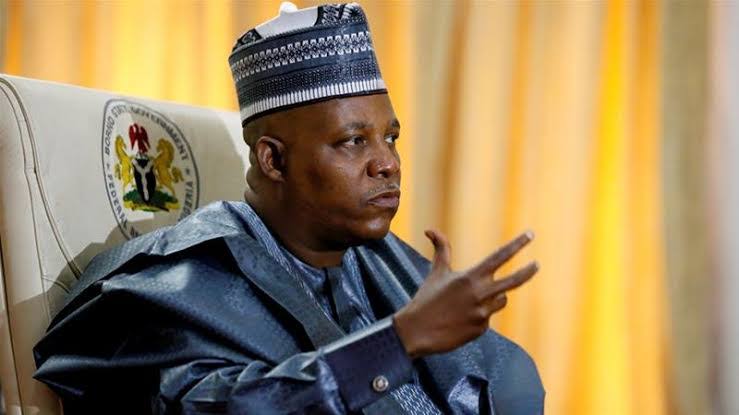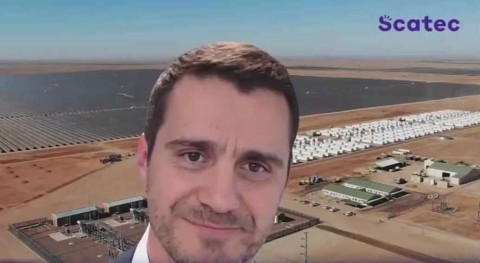Kosmos Energy baits Mahama gov't with US$2 billion
…Offer sparks industry controversy amid petroleum agreement extension talks
Kosmos Energy’s recent announcement of a US$2 billion investment in Ghana’s upstream petroleum sector, made during the 2025 Africa Energy Forum (AEF) at the Offshore Technology Conference (OTC) in Houston, has stirred deep divisions within Ghana’s oil and gas industry.
While, the Minister for Energy and Green Transition, John Jinapor, has publicly hailed the pledge as a signal of renewed investor confidence and an era of transparency and reform, industry insiders are raising red flags.
Multiple sources with in-depth knowledge of Ghana’s existing Petroleum Agreement, particularly the terms governing the Jubilee Field, suggest that the investment offer, may be less altruistic than it appears.
These sources—former executives at the Ghana National Petroleum Corporation (GNPC), the Petroleum Commission, and the Ministry of Energy—suggest that Kosmos Energy, is using the US$2 billion pledge as bait to secure an extension of the 30-year petroleum agreement before it expires.
They argue that, the agreement has only five years remaining, after which control of the lucrative Jubilee Field would revert to the state.
At that point, Ghana would be in a strong position to renegotiate new terms, potentially with more favourable fiscal conditions and a structure better aligned with its national development priorities.
In this context, Kosmos’ investment announcement, is seen not just as a business commitment but as a strategic move to lock in existing terms before the state’s window of opportunity closes.
Critics warn that agreeing to such an extension now, particularly without a thorough and transparent public interest evaluation—risks forfeiting long-term national benefits in exchange for short-term capital inflows.
“This is not just about investment—it’s about control,” said a former GNPC executive who spoke to The Herald on condition of anonymity.
“Once the field reverts to Ghana, we can attract investment on our terms. This pledge is designed to preempt that,” the GNPC expert said.
Moreover, the offer appears misaligned with the government’s own recent push to increase domestic value addition in its natural resource management. Industry observers argue that granting an extension at this stage, especially in response to a dangling investment promise, would contradict efforts to secure more beneficial returns for the country from its resource wealth.
The decision now rests heavily on the shoulders of the Minister of Energy, who is being advised by figures such as Kwame Ntow Amoah and Michael Ayitey.
Both individuals, have come under scrutiny in the past for their roles in controversial transactions within the sector—deals that some argue have had lasting negative consequences on Ghana’s oil industry.
“The advice reaching the Minister must be weighed carefully,” said another former Ministry official. “This is a pivotal moment. We should not let desperation for capital cloud our judgment or allow ourselves to be maneuvered into unfavorable long-term commitments.”
Publicly, Mr Jinapor, maintains that the government’s approach is rooted in competitiveness, transparency, and investor partnership. He emphasized that the upstream fiscal regime is under review and invited stakeholders to participate in shaping a refreshed, investor-friendly policy framework.
But beneath the surface, tensions are growing. The industry is split between those who view the investment as a welcome catalyst for growth and those who see it as a strategic ploy—one that risks locking Ghana into another cycle of external control and diminished resource sovereignty.
As the debate intensifies, all eyes are now on the Ministry of Energy. The decision it makes in the coming months will not only determine the fate of the Jubilee Field but could also set the tone for Ghana’s broader energy governance for years to come.
Will the government seize the opportunity to redefine its resource management strategy, or will it succumb to pressure under the guise of investment? The answer could shape the next chapter of Ghana’s oil narrative.
The Energy Ministry, last Saturday, announced that Kosmos Energy, was set to invest US$2 billion in its upstream operations in Ghana, significantly enhancing the country’s petroleum sector.
John Jinapor, described Kosmos Energy’s offer and the government’s commitment to reform, as signaling a new chapter in Ghana’s energy narrative—one rooted in transparency, collaboration, and opportunity.
He reinforced Ghana’s strategic efforts to position itself as a competitive, transparent, and investor-friendly destination for energy investment.
“Ghana is entering a new era—one defined by stability, predictability, and strong government support. We want investors to know: Ghana is open for business,” he said.
Mr Jinapor, said that the government would initiate a comprehensive review of its upstream fiscal regime to increase competitiveness and regulatory clarity as part of this investor-focused strategy.
He stated that Ghana’s upstream sector policy framework was under review, signaling the government’s readiness to collaborate with domestic and international partners in shaping the future of the country’s energy sector.
Therefore, he invited industry stakeholders to actively contribute to upcoming policy reforms aimed at bolstering investor confidence and improving sector governance.
The Minister, called on global investors to explore the growing opportunities within Ghana’s revitalized energy sector.
He positioned Ghana as a ready and reliable investment destination, underscoring the government’s commitment to creating an enabling environment for sustainable investment, particularly in energy and related infrastructure.
“Ghana is the right place to do business. With a new administration focused on overhauling systems and implementing bold fiscal and regulatory reforms, we are open and ready for investment,” he said.
Mr Jinapor stressed that “The prospects are already becoming evident. We are determined to reverse the trend and scale up production. With these efforts, we will continue to supply reliable power to Benin, Togo, Côte d’Ivoire, and Burkina Faso. Ghana remains a pivot for energy security in the West African sub-region.”
The forum, featured prominent energy leaders, including Heineken Lokpobiri, Nigeria’s Minister of Petroleum Resources (Oil); Emeafa Hardcastle, CEO of the Petroleum Commission; Judith Blay, CEO of the Ghana National Gas Company; Nana Joe Mensah, Senior Vice President and Head of Ghana Business Unit at Kosmos Energy HC; and Simon Madjie, CEO of the Ghana Investment Promotion Centre.











